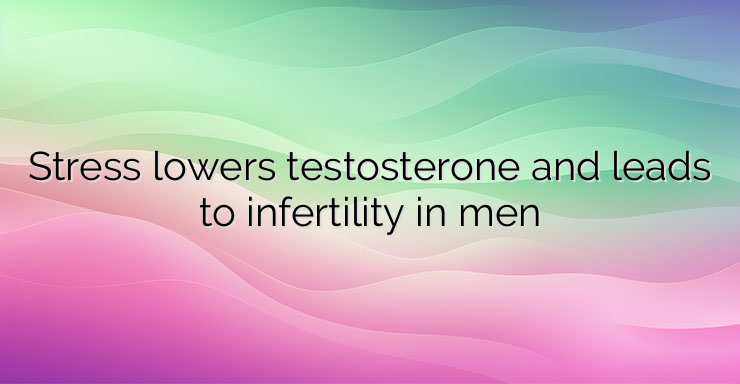The term stress defines the non-specific response of the organism to increased demands from the environment, changes or the action of various stimuli that can be defined as stressors. Although usually the concept of stress is imbued with a negative aspect, stress, in itself, is a natural physiological process and characterizes the adaptation of biological tissues to various stimuli. In addition, stress can also have a positive meaning, as it represents the organism’s ability to build certain qualities that have evolutionarily contributed to the preservation of the biological species. Prolonged exposure to stress leads to stimulation of the nervous, endocrine and immune systems. Stress, in its various forms, can have a significant negative impact on male reproductive health. The classic stress response activates the sympathetic nervous system and involves the hypothalamic-pituitary-adrenal axis. Both the function of this axis and the gonadotropin-inhibiting hormone – GnIH have a suppressive effect on the hypothalamic-pituitary-gonadal axis and the Leydig cells in the testes. As a result of suppression of the hypothalamic-pituitary-gonadal axis, testosterone levels are reduced. The hormones that are released as a result of this activation can lead to a different adaptive response of the body and neuroendocrine changes that affect fertility. This leads to changes in Sertoli cells and the blood-testis barrier, which is the cause of suppression of spermatogenesis. Impaired testosterone secretion is a key element that underlines the harmful influence of psychological stress on spermatogenesis. Elevated levels of cortisol, also called the stress hormone, have been found to lower testosterone and inhibin levels. A study evaluated the effects of psychological stress on sex hormone levels and semen quality in men in couples undergoing infertility treatment. The level of psychological stress was assessed by questionnaires and it was found that in 27% of the studied patients the levels of stress in everyday life were high. Men who were exposed to significant stress had lower levels of testosterone and higher levels of follicle-stimulating hormone (FSH) and luteinizing hormone (LH) than those who were not stressed. Gonadotropin-releasing hormone (GnRH) levels, however, were unchanged. Testosterone secretion is negatively correlated, while FSH and LH levels are positively correlated with daily stress levels. Also, under stress, there is a reduced number of spermatozoa in the seminal fluid, a decrease in their motility and a disruption of their normal morphology. Serum testosterone levels are positively correlated, while those of LH and FSH are negatively correlated with sperm count and motility in the seminal fluid composition. The stress that results from professional commitments,has a negative impact on the quality of the seminal fluid and leads to an increase in the percentage of spermatozoa with damaged DNA. References: https://www.ncbi.nlm.nih.gov/books/NBK562258/


Leave a Reply